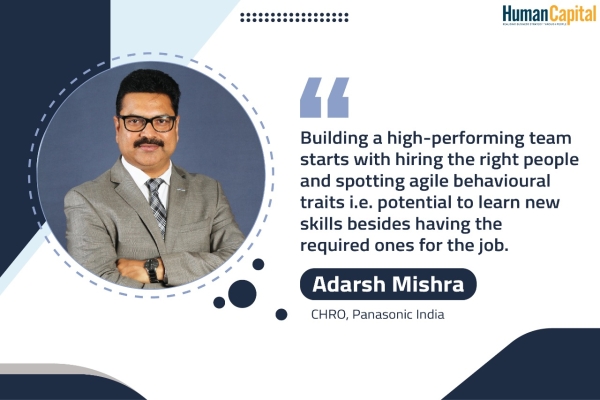Firms tend to promote top sales workers into management, even though they emerge as the worst managers. And organisations tend to hasten their decline both in terms of growth and culture.
In the late 60s, Doctors Laurence J. Peter and Raymond Hull authored, “The Peter Principle: Why Things Always Go Wrong.” The underlying crux of the book is that everyone in the organisation is promoted until they attain a level of incompetence. The book was a best seller for many weeks, and is printed even today –45 years since it first hit the stands!
Post The Peter Principle, the constructs of both organisations and leadership have undergone multiple changes. More specifically, most organisations have invested in programmes to develop managers as well as leaders, introduced panels for promotions for mid and senior levels, initiated guidelines for promotion, and decided to consider inputs from 360-degree feedbacks for promoting employees. However, this does not address the point that the next level can actually render a high performing employee to be incompetent.
The premise of The Peter Principle is largely based on the managerial role, which exerts power and controls employee growth in large hierarchical structures. Managers would reward employees who demonstrate loyalty, and would act as per their directions. Of course, there are other reasons like promoting employees on the basis of their tenure in the current role or organisation, and cultural aspects, wherein the management is associated with upward movement. The fallout of these practices is that employees are promoted without having the skills and the depth to handle the responsibilities at the higher level.
Most of these reasons have resonated in one’s professional work experience. An underlying factor is that one of the tenets of employee engagement is clearly linked to promotions. HR partners have been championing internally that growth and career prospects of employees are dependent on promotions. Many organisations advertise promotions as a value add for all their employees. However, what gets ignored is that promotions place great heft on the present performance, as against the fit for the next higher role. The book also states, “You will see that in every hierarchy the cream rises until it sours.”
A recent study published by Alan Benson, Danielle Li, and Kelly Shue in HBR+ examined data on the performance of salespeople and their managers at 214 firms. The study found that among the people who were promoted, better salespeople ended up as bad managers. In other words, organisations tend to hasten their decline in terms of growth and culture, due to low productivity and poor management.
At the time of writing the book, startups and unicorns were nonexistent. Given their new age employee policies and open workplace practices, the interest in startups peaked in the market. However, in the past two years, the bubble has burst with many startups’ folding up. One among the many documented reasons which hastened their downfall was how inexperienced employees were promoted to the next level and expected to deliver on the newer responsibilities.
To overcome the Peter Principle, there is heavy lifting required in terms of the performance management lifecycle and the roles in the organisation. Investing in a dual career track for individual contributors and managerial positions with similar job levels and perks could mitigate the imminent consequences of the Peter Principle. Firms could look in the direction of establishing or strengthening their Organisation Development function to constantly evaluate the existing and/or newer roles and benchmark the same against industry practices. Else the Peter Principle would only have existed in someone’s imagination.
+ - Do People Really Get Promoted to Their Level of Incompetence? (March 2018)

Has COVID-19 forever changed the way we live and work?
Trending
-
SBI General Insurance Launches Digital Health Campaign
-
CredR Rolls Out 'Life Happens' Leave For Its Employees
-
Meesho Announces 30-Week Gender-Neutral Parental Leave Policy
-
Microsoft Unveils Tech Resilience Curriculum To Foster An Inclusive Future
-
60% Indian Professionals Looking For Job Change Due To COVID: Survey
-
SpringPeople And Siemens Collaborate For Digital Transformation Push
-
86% Professionals Believe Hybrid Work Is Essential For Work Life Balance: Report
-
Almost 1 In Every 3 People's Personal Life Affected Due To Work Stress
-
Meesho Rolls Out Reset And Recharge Policy For Employees
-
80% Of Talent Leaders & Academics Say Pandemic Changed Skill Needs For Youth: Report
-
Hero Electric Rolls Out 'Hero Care' Program For Employees
-
Human Capital In Collaboration With ASSOCHAM Hosts Virtual Conference
-
IKEA India, Tata STRIVE Collaborate To Create Employability And Entrepreneurship Opportunities
-
SAP India, Microsoft Launch Tech Skilling Program for Young Women
-
DXC Technology, NASSCOM Collaborate For Employability Skills Program
-
Lenskart To Hire Over 2000 Employees Across India By 2022
-
Mindtree Launches Learn-and-Earn Program
-
Tata AIA Extends 'Raksha Ka Teeka' To Its Employees
-
Swadesh Behera Is The New CPO Of Titan
-
NetConnect Global Plans To Recruit 5000 Tech Professionals In India
-
Hubhopper Plans To Hire 60% Of Indian Podcasters By 2022
-
Corporate India Needs More Women In Leadership Roles: Report
-
Aon to Invest $30 Million and Create 10,000 Apprenticeships by 2030
-
Tech Mahindra Launches ‘Gift a Career’ Initiative for Upskilling of Youth
-
40% Women Prefer Flexible Working Options in Post-COVID World: Survey
-
3 out of 4 companies believe they can effectively hire employees virtually: Report
-
Vodafone , CGI and NASSCOM Foundation launch digital skills platform
-
Odisha: Bank, postal employees to deliver cash for elderly, differently-abled persons
-
Skill India launches AI-based digital platform for "Skilled Workforce"
-
Hiring activity declines 6.73% in first quarter: Survey
-
70% startups impacted by COVID-19 pandemic
-
Bajaj Allianz Life ropes in Santanu Banerjee as CHRO
-
Over 70 Percent MSMEs look at cutting jobs to sustain businesses
-
93 Per Cent employees stressed about returning to office post-lockdown
-
Johnson & Johnson India announces family benefits for same gender partners
-
Indian firms turning friendly towards working mothers
-
Welspun India names Rajendra Mehta as new CHRO
-
Wipro partners with NASSCOM to launch Future Skills platform



Human Capital is niche media organisation for HR and Corporate. Our aim is to create an outstanding user experience for all our clients, readers, employers and employees through inspiring, industry-leading content pieces in the form of case studies, analysis, expert reports, authored articles and blogs. We cover topics such as talent acquisition, learning and development, diversity and inclusion, leadership, compensation, recruitment and many more.
Subscribe Now












































Comment